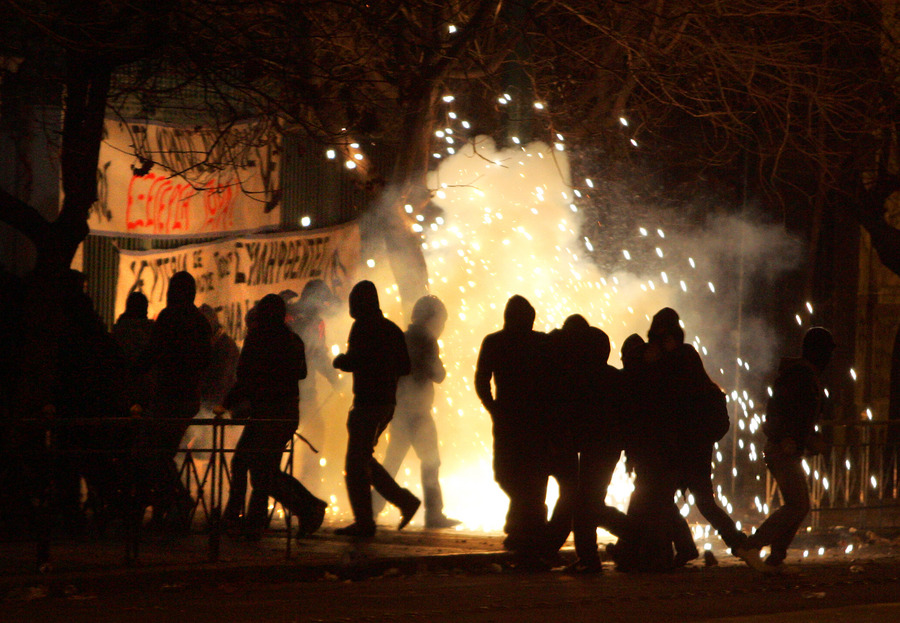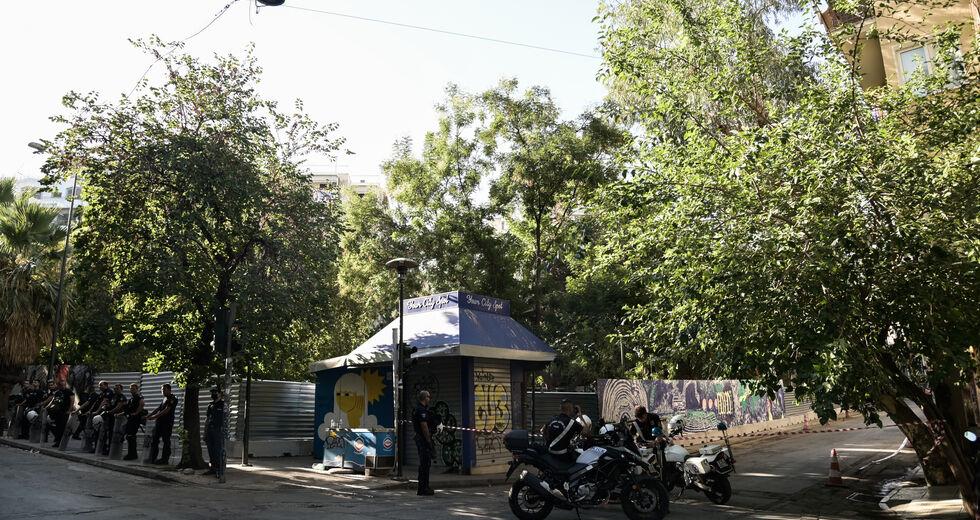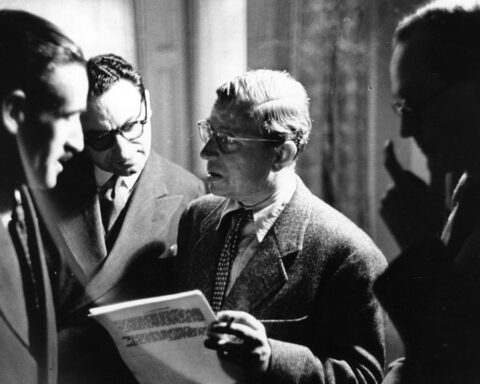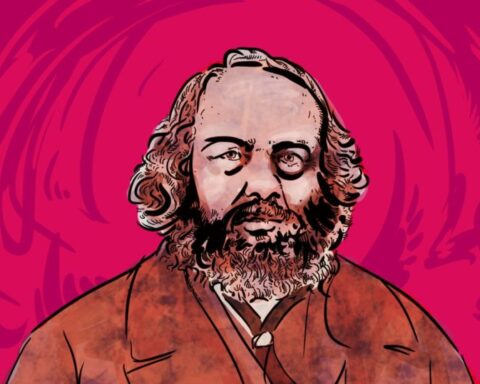Historian Enzo Traverso on his latest book, Revolution: An Intellectual History. The interview originally appeared in the Alias section of il manifesto, 9 July 2022 and was published in the Verso books blog, 01/08/2022, translated by David Broder.
“Revolution — without icons and without capital letters — remains a necessity, as an indeterminate idea of change and as the compass for human will. Not as a model, not as a prefabricated schema, but as a strategic hypothesis and a regulating horizon.” These words by the philosopher Daniel Bensaïd begin Enzo Traverso’s new book, soberly entitled Revolution: An Intellectual History. Traverso, one of Italy’s foremost historians of ideas, now teaches at Cornell University. Il manifesto met up with him in Rome during a recent visit in which he presented his book.
Today, the enemies of political and social revolution speak of “revolution” when they are selling the latest model of smartphone, the latest brand of toothpaste, or running for election. Whereas those who would be in favour of revolution are silent. In what sense is revolution still a “strategic hypothesis” today, as Bensaïd argued?
There has been an obfuscation of the word “revolution,” which has become devoid of content, an empty signifier. There was a time when the Left had to choose between reform and revolution. Today, the word “revolution” refers to the latest model of iPhone and “reform” to some socially regressive measure related to the introduction of neoliberal management (hence labour reforms, reforms to the healthcare system, university reforms and so on). This metamorphosis is also significant in the field of historiography, where the idea of “fascist revolution” — itself belonging to fascist rhetoric — is widespread, while the revolutionary dimension of events such as the Spanish Civil War or the Paris Commune tends to be ignored. The concept of “revolution” changes, as do its political uses. We are well past the era when a historian like Eric Hobsbawm made it the key to interpreting modernity. I am convinced that this eclipse has its origin — far from questions of the communicative strategies of politics and the culture industry — in the defeat of the revolutions of the twentieth century. This was, indeed, the age of revolutions, not just wars and totalitarianism. In the century of the “principle of hope,” communism had become a concrete and possible utopia, in Ernst Bloch’s sense. This “horizon of expectations” has vanished.
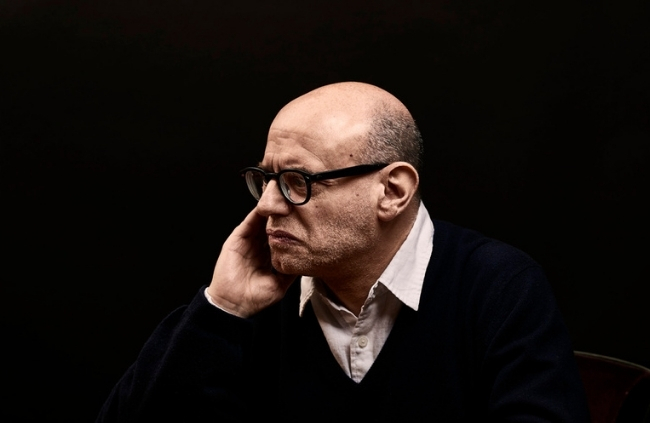
You write that the movements over the last fifteen years, and perhaps even longer than that, have not manifested a historical memory, yet they are not prisoners of the past and they need to reinvent themselves. How is it possible to create a revolutionary political tradition, under these conditions?
Obviously, it is not a matter of blaming young people for their lack of historical memory. Rather, it is a question of coming to terms with the “sense” of history that is today dominant. The new social and political movements have considerable potential, but they are the offspring of a historical turning point that has evacuated the utopian horizon of the past, identified precisely with the idea of revolution. Reconstructing its history and semantic shifts will perhaps help us understand that it remains a compass for our time.
What does it mean not to have a memory of revolution?
It means that the cycle of revolutions in the twentieth century has come to an end and that we are living the consequences of this change. For a century, history seemed to be running towards socialism, whose premise was the conquest of power by military force. This vision is light years away from our intellectual universe today. It is this turn of events that prevents the new movements from fitting into a historical continuity. This does not mean that there will be no more revolutions. On the contrary, there have already been some in recent years — just think of the “Arab Spring”. These revolutions, however, no longer identified themselves with past models — socialism, national liberation, pan-Arabism —which are now obsolete, exhausted, or defeated, and they did not really know where they were going. Once the oppressive regimes of Ben Ali and Mubarak had been overthrown, they did not know how to replace them.

Even when strong models did exist, many revolutions failed. Is a loss of bearings an aggravating factor?
It is also a condition that allows for great freedom. The idea of a radical transformation persists even though it does not recognise itself as heir to the models inherited from the twentieth century, in particular communism and anti-colonialism. But a new model is not yet in sight. This vacuum is at the origin of an incredible creativity, I would even say a considerable theoretical sophistication, present in movements that are forced to reinvent themselves. At the basis of this creativity is a revolutionary question: how to change the world, put an end to capitalism, save the planet, overcome the appalling inequalities that plague our societies? I think that this need is widely felt among young people today.

Reference to the 1960s and 1970s runs through several of your books, for example Left-Wing Melancholia. Marxism, History and Memory. What are the differences between those years and today?
Those who discovered politics in the 1970s had to choose from a wide range of well-defined movements and organisations. This is, fortunately, not the problem for young people today, who think and act without feeling that they are being enclosed in ideological cages. However, this change does not only offer advantages, but also brings great fragility, precisely because these movements are not inscribed in a historical continuity. They are ephemeral, short-lived sparks. When they do manage to build up a durable and established political presence, they run the risk of being reabsorbed by traditional politics, as we have seen with Podemos, with Syriza, or even in Great Britain, where the attempt to renew the Labour party from below hit a wall. In Italy, all the movements that have appeared in the last twenty years have failed to give themselves a political expression except through coalitions of micro-apparatuses that would stifle any enthusiasm. We need to go beyond these brief upsurges to reconstruct a horizon of expectation, to reinvent an idea of futurity.
In the neoliberal societies that you analyse in Singular Pasts: The “I” in Historiography there is the terror of failure and defeat. Does this put us off even thinking of trying again?
Maybe, but socialism was born out of “working through” defeat, namely the defeat of the French Revolution that ended with the Restoration. The twenty-first century was born out of another historical defeat, of global dimensions. The younger generations probably do not realise this, but they act in a context heavily burdened by this legacy. Recovering a sense of history, knowing that changing the world is an age-old project — a project that in the twentieth century not only seemed possible, but was put into action — could offer an identity, however unstable it is, and make us feel less vulnerable.
One of the most interesting ideas that has emerged in recent years from the movements is intersectionality, the convergence of struggles and a new idea of class as the object of multiple oppressions and the subject of possible resistances. This perspective is often evoked in France, a country where you have lived and taught, including in the experience of La France Insoumise. Can this be a useful practice for constructing the sense of the revolutionary perspective?
La France Insoumise has evolved in a positive way. Several unsavoury nationalists or “sovereigntyists” left or were asked to leave. It participated in the Gilets Jaunes even without being the driving force in this movement. It was able to integrate the environmental dimension and practise — as far as possible — intersectionality between claims and demands based on gender, race, and class. Because it is attuned to the anti-racist movements in working-class banlieues, it overcame the narrow limits of “national-republicanism”, the old framework of French socialism. The left-wing coalition has achieved a significant electoral success, but clearly this is no revolution. It must overcome many obstacles.
How so?
From a purely formal point of view, the programme of the left-wing NUPES coalition is more moderate than that of François Mitterrand’s Union de la gauche in 1981. It does not include the nationalisation of certain key sectors of the economy. Mélenchon has honestly acknowledged this: even if he had become prime minister, he would not have had the strength to implement his programme without the support of a strong social movement, which is missing at the moment. The problem is the very high level of abstention. In the current context, the old programme of social democracy — redistribution of wealth, social reforms, defence of wages and pensions, access to education, transport, and health — implies a rupture with the neoliberal order. La France Insoumise embodies this rupture. In the post-war period, social democracy was the instrument of the “humanisation” of capitalism facing a gigantic challenge, that of socialism as a “principle of hope” unfolding across a global scale. Today, social democracy has become one of the pillars of the neoliberal order. In the era of universal reification, a genuine social-democratic programme cannot be realised without a rupture with the dominant model of capitalism.

There is not only the history of revolutions but also a history of counterrevolutions. This has been the case since the beginning of the modern revolutions, the French and Soviet revolutions, with devastating effects. Are counterrevolutions simply reactions or are they autonomous, producing a new reality of their own?
It is a kind of norm of history: there is no revolution without counterrevolution, bound by a symbiotic relationship. The “velvet revolutions”, which emerged when Soviet power was in crisis and could no longer send the tanks to suppress them, were an exception. Counterrevolutions have a culture and ideology of their own, which go through transformations. In the twentieth century, they produced fascism. The rhetoric of fascism was intended to be “revolutionary”, but its main component was reaction against Bolshevism. The twentieth-century counterrevolution did not claim to restore the ancien régime but rather to invent a new form of power. Its culture was not insignificant, even if some considered it only an “anti-culture”; after all, fascism invented a new idea of civilisation. In Germany, Nazism produced great figures like Jünger, Schmitt and Heidegger. In France, the literature of the first half of the twentieth century is marked, after Proust, by a string of fascists like Céline and Drieu la Rochelle.
Can the current neoliberal cycle be interpreted as a counterrevolution — as a reaction to the global revolutionary cycle of the 1960s and 1970s?
Yes. I would like to answer, as a historian, by evoking Fernand Braudel’s longue durée. The neoliberal age we are living through today can be seen as a backlash — in this sense, a counterrevolution — against the long cycle of twentieth-century revolutions. On the social level, this is obvious. All the social achievements of the last century have been called into question. The power relations between classes on a global scale have changed profoundly. In Brooklyn, workers in an Amazon warehouse gained recognition for their union — and this was one of the great achievements of recent years. If we think about what the labour movement was in the 1960s and 1970s, there is no doubt that this achievement comes in a frightening context of regression.
What is the history of the counterrevolution which we are living through?
For decades, neoliberalism was a heretical current within the culture of the ruling classes. During World War II, who would have taken seriously a book like The Road to Serfdom, which presented Roosevelt as a fifth columnist for totalitarianism, at a time when the Soviet Union, the United States and Great Britain were fighting Nazism and fascism? At the time, Hayek’s ideas were inadmissible. The first sign of a turnaround came with the Chilean coup of 1973. The Chicago Boys arrived and introduced structural reforms that the Left around Gabriel Boric still has to joust with today. Pinochet embodied the armed counterrevolution. Subsequently, neoliberalism imposed itself with an “anti-totalitarian” rhetoric based on the combination of liberal democracy and market society.
So, neoliberalism is not only a reaction, but also an institutionalised political form and a specific form of life that aspires to continual self-renovation. Is it right to cast it as “revolutionary”?
The neoliberal “revolution” — which extends far beyond neoliberalism as an economic model — is a permanent bombardment of images, fashions, commodities, and illusions. It is, in a word, a “privatised utopia”. This is no innocent operation. It seeks to instil the feeling that everything is transforming around us even if the socio-economic order that produces catastrophes and immense suffering, capitalism as civilisation — what Andreas Malm calls the “capitalocene” — remains immutable. I would like to emphasise that neoliberalism has not only imposed itself with armies, but above all as a “democratic” alternative to totalitarianism, which all twentieth-century history has been folded into.
If revolution has been hijacked by counterrevolutionaries, how can this outlook be turned around?
I don’t think that anyone has the recipe for that. Revolution is a historical moment in which the oppressed become aware of their strength, their ability to change the world through collective action. Walter Benjamin used an evocative formula: the splitting of the atom that unleashes extraordinary and explosive forces. Revolution is the moment when the linearity of history is suddenly broken and everything becomes possible, when new horizons open up: revolutions are factories of utopias. This inevitably entails considerable risks because dangerous paths can also be taken.
Revolutions, however, do not happen by decree, they arise from below and spread like “furies”, as Jules Michelet put it. But it is important to know that, even though revolutions are continually being exorcised, they are still breathing life into history.
________
Source: autonomies.org/2022/08/enzo-traverso-revolutions-are-still-breathing-life-into-history
